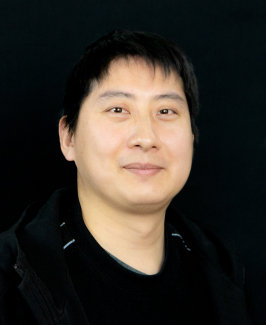Dr. Xun Gao has been honored with the designation of JILA Fellow, highlighting his anticipated contributions to JILA’s research. In addition to his appointment as a JILA Fellow, the Department of Physics at the University of Colorado Boulder has added Gao as an Assistant Professor. His enthusiasm for the collaborative spirit that characterizes the JILA and CU Boulder communities promises to bring fresh perspectives and innovative research to the forefront.
As a distinguished quantum information theorist, Professor Gao's work is at the cutting edge of exploring quantum computational advantages. His research delves into the capabilities and boundaries of contemporary quantum devices, quantum machine learning, and quantum optimization algorithms. Furthermore, Gao's work on quantum error correction and applying quantum-inspired methodologies to classical algorithm design is poised to advance the field significantly.
Earning his Ph.D. in Physics from Tsinghua University in Beijing in 2018, Professor Gao brings a rich academic and research background to JILA. His journey included a Postdoctoral Fellowship at Harvard University within the Max-Planck Harvard Research Center for Quantum Optics before he arrived at JILA.
We warmly welcome Professor Xun Gao to CU Boulder and look forward to the innovations and collaborative achievements his presence will inspire. Welcome aboard, Professor Gao!
Written by Kenna Hughes-Castleberry



 The Physics Frontiers Centers (PFC) program supports university-based centers and institutes where the collective efforts of a larger group of individuals can enable transformational advances in the most promising research areas. The program is designed to foster major breakthroughs at the intellectual frontiers of physics by providing needed resources such as combinations of talents, skills, disciplines, and/or specialized infrastructure, not usually available to individual investigators or small groups, in an environment in which the collective efforts of the larger group can be shown to be seminal to promoting significant progress in the science and the education of students. PFCs also include creative, substantive activities aimed at enhancing education, broadening participation of traditionally underrepresented groups, and outreach to the scientific community and general public.
The Physics Frontiers Centers (PFC) program supports university-based centers and institutes where the collective efforts of a larger group of individuals can enable transformational advances in the most promising research areas. The program is designed to foster major breakthroughs at the intellectual frontiers of physics by providing needed resources such as combinations of talents, skills, disciplines, and/or specialized infrastructure, not usually available to individual investigators or small groups, in an environment in which the collective efforts of the larger group can be shown to be seminal to promoting significant progress in the science and the education of students. PFCs also include creative, substantive activities aimed at enhancing education, broadening participation of traditionally underrepresented groups, and outreach to the scientific community and general public.